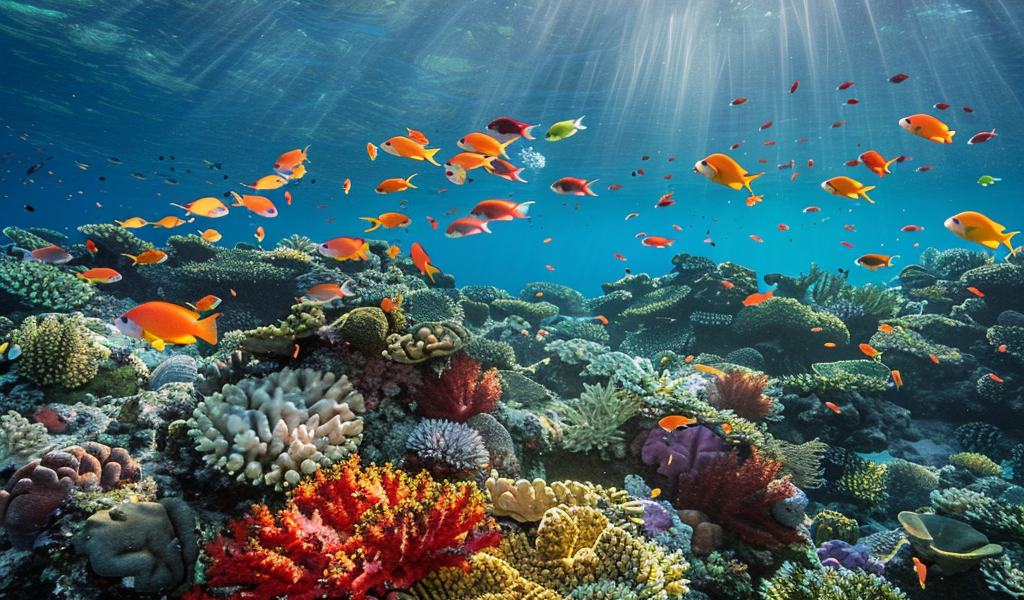In a groundbreaking study, scientists have unveiled promising findings suggesting that multivitamins could play a pivotal role in the conservation of coral reefs, one of the planet’s most endangered ecosystems. This innovative research was conducted by experts from the Woods Hole Oceanographic Institution (WHOI) and the University of the Virgin Islands, who aimed to explore how essential nutrients could enhance coral health and resilience against climate change.
Coral reefs, often referred to as the “rainforests of the sea,” are crucial to marine biodiversity and support a vast array of marine life. However, they are under severe threat from various environmental stressors, including pollution and rising sea temperatures, which lead to a phenomenon known as coral bleaching. This occurs when corals expel the algae living in their tissues, resulting in a stark white appearance and ultimately jeopardizing their survival.
The research team focused on the impact of micronutrients such as manganese, zinc, and iron on coral health. They conducted a series of lab experiments over the course of a year, testing tiles infused with these essential nutrients to determine their effects on coral. The results were encouraging; corals treated with multivitamins demonstrated enhanced strength and resilience to heat stress, a critical factor given the rising ocean temperatures associated with climate change.
Colleen Hansel, a researcher at WHOI, emphasized the significance of these findings, stating, “We are studying how corals react when grown on substrates that have been infused with essential metal micronutrients.” This research indicates that by enriching the environment with these nutrients, it may be possible to bolster coral populations against the adverse effects of climate change.
In light of these promising results, the research team is planning further experiments that will involve planting the nutrient-infused tiles within the concrete structure of an artificial reef. This artificial reef is being constructed adjacent to a natural reef that has suffered extensive damage due to marine heat waves and extreme weather events.
Marilyn Brandt, a researcher from the University of the Virgin Islands, explained the rationale behind this initiative: “The artificial reef we’re building is going in next to a natural reef that has been severely impacted by marine heat waves and extreme storm events.” The team envisions that this structure will provide a robust foundation for young corals while simultaneously allowing the nutrient tiles to disseminate essential vitamins into the surrounding waters, thereby enhancing the corals’ ability to withstand environmental stresses.
The researchers are optimistic that the combination of the nutrient-rich tiles and the artificial reef will foster a diverse ecosystem, promoting the recovery of coral populations in areas that have been heavily impacted by climate change. This innovative approach could pave the way for new strategies in coral conservation, offering hope for the future of these vital marine habitats.
As the global community grapples with the pressing challenges posed by climate change, the findings from this study underscore the importance of innovative research in developing solutions to protect our planet’s ecosystems. The integration of nutritional science into marine conservation efforts could represent a significant step forward in the fight to save coral reefs and the myriad species that depend on them.
With ongoing research and experimentation, scientists continue to seek effective methods to mitigate the impacts of climate change on coral reefs. The potential of multivitamins to enhance coral health presents a fascinating avenue for further exploration, and as additional studies are conducted, the hope is that these efforts will contribute to the long-term sustainability of coral ecosystems worldwide.





